Nasal polyps can sometimes become dislodged, especially with pressure, irritation, or certain everyday habits. When this happens, it may lead to nasal blockage, discomfort, or changes in breathing. Preventing the movement of nasal polyps can help reduce symptoms and support easier recovery.
This article will provide valuable information on understanding the causes of nasal polyps becoming dislodged, strategies to minimize their movement, and treatment options for when they do become dislodged.
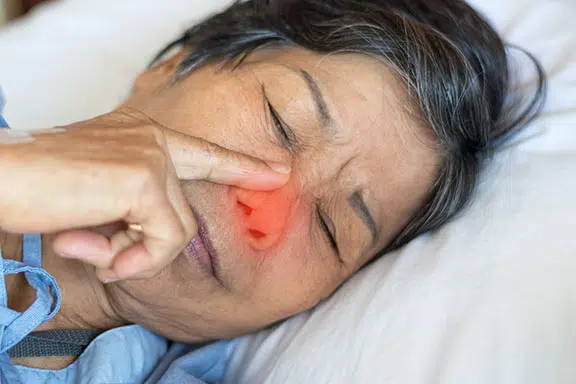
Keeping Nasal Polyps Stable with Simple Daily Habits
- Nasal polyps can get dislodged by changes in air pressure, so keeping indoor air steady helps.
- Using a saline spray regularly can keep nasal polyps moist and less likely to move.
- Touching your face or nose without washing your hands can irritate nasal polyps and cause them to shift.
- Avoiding allergens and strong hair products can reduce swelling and help nasal polyps stay in place.
- Eating foods that fight inflammation, like leafy greens and berries, may help prevent nasal polyps from becoming dislodged.
What Causes Nasal Polyps to Become Dislodged
Nasal polyps can become dislodged due to physical trauma, excessive nose blowing, or exposure to allergens. Additionally, changes in air pressure, dry air, or the use of certain hair styling products can also cause nasal polyps to move out of place.
The specialists at Penn Medicine Becker ENT & Allergy educate their patients on how to minimize the risk of nasal polyps becoming dislodged. Their board-certified physicians can surgically remove nasal polyps or effectively treat the symptoms of nasal polyps.
10 Strategies to Minimize the Movement of Nasal Polyps
There are several strategies that can help prevent nasal polyps from getting dislodged. These include monitoring air pressure, practicing proper hand hygiene, allergen avoidance, using saline solutions, and more. Implementing these strategies in your daily routine can help keep your nasal polyps in place and reduce discomfort.

1. Monitor Air Pressure Changes
Sudden changes in air pressure—like when flying or going to higher altitudes—can cause nasal polyps to shift. To reduce this risk, try to avoid quick elevation changes when possible. If you’re sensitive to weather pressure shifts, consider using a home barometer or a weather app to track changes and prepare in advance.
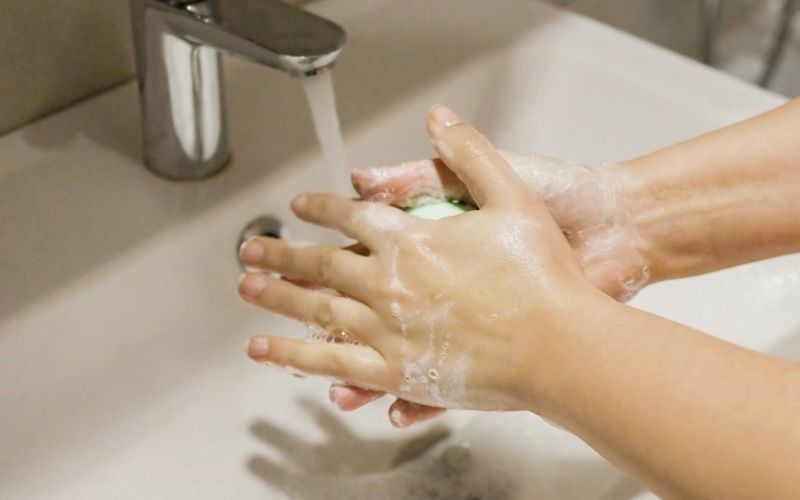
2. Practice Good Hand Hygiene
Touching your face or nose with unwashed hands can introduce bacteria or irritants, which may trigger inflammation and cause nasal polyps to move. Wash your hands often with soap and water, especially after touching your face, being in public, or handling items like phones or door handles.
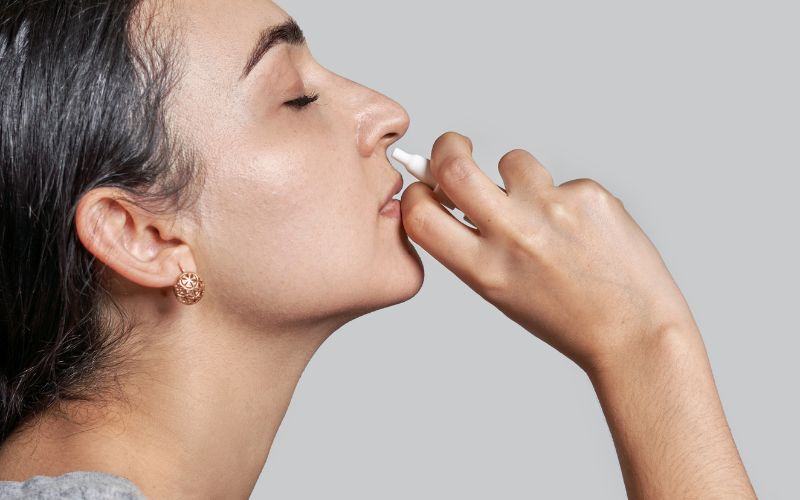
3. Use a Saline Nasal Rinse
Keeping your nasal passages clean and moist can prevent irritation that causes polyps to move. Use a saline spray or rinse daily—especially after exposure to dust, pollen, or smoke. Always use distilled or sterile water when rinsing to avoid introducing bacteria into your nose.

4. Be Cautious with Hair Products
Hairsprays, gels, and strong fragrances can irritate your nasal lining and disturb polyps. When using these products, shield your nose with your hand or a tissue. Choose fragrance-free or hypoallergenic options to avoid unnecessary irritation.
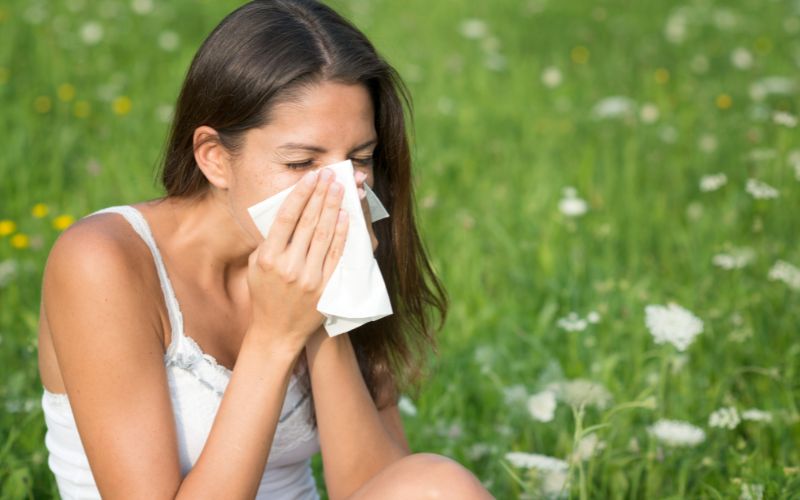
5. Avoid Common Allergens and Irritants
Exposure to allergens like pollen, pet dander, dust mites, or cigarette smoke can inflame your nasal tissues and make polyps more likely to shift. Use air purifiers, keep windows closed during allergy season, and avoid strong chemical cleaners whenever possible.

6. Manage Acid Reflux (GERD)
If you have acid reflux, the stomach acid can reach your nasal passages and contribute to inflammation. Managing GERD with diet changes, sleeping on an incline, or taking medications as prescribed can help reduce nasal irritation and stabilize polyps.
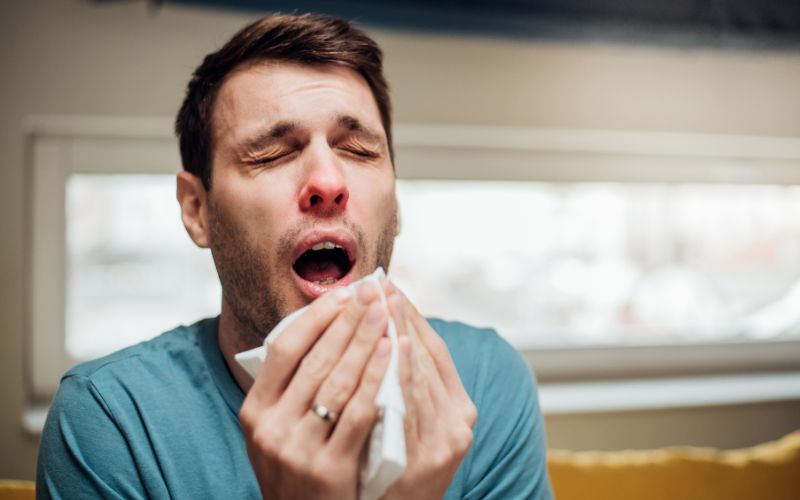
7. Avoid Forceful Blowing or Sneezing
Blowing your nose too hard or sneezing forcefully can create pressure that may dislodge nasal polyps. Instead, gently blow your nose when needed, and try to sneeze with your mouth open to release pressure evenly.

8. Keep Your Head Elevated While Sleeping
Sleeping with your head slightly raised helps your sinuses drain more effectively and reduces overnight pressure buildup. Use an extra pillow or a wedge to elevate your head and keep nasal polyps more stable while you sleep.
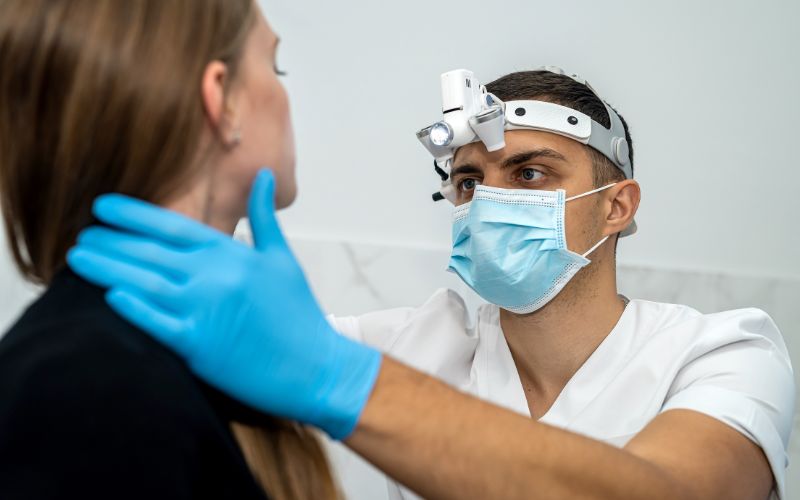
9. See an ENT Specialist Regularly
Routine checkups with an ear, nose, and throat (ENT) doctor help monitor your nasal polyps. Your provider can catch early signs of movement or growth and adjust your treatment plan before symptoms worsen or become uncomfortable.
10. Eating Foods with Anti-inflammatory Properties
Incorporating foods with anti-inflammatory properties into your diet can help reduce inflammation in the nasal passages and prevent nasal polyps from becoming dislodged. Some examples of anti-inflammatory foods include:
- Fatty fish, such as salmon, mackerel, and sardines, are rich in omega-3 fatty acids
- Leafy greens, such as spinach, kale, and collard greens contain high levels of antioxidants and vitamin K
- Berries, such as blueberries, strawberries, and raspberries are packed with antioxidants
- Nuts, such as almonds and walnuts, are high in healthy fats and vitamin E
- Olive oil contains heart-healthy monounsaturated fats and antioxidants
Tips for Reducing Pressure Around the Nose and Sinuses
Reducing pressure around the nose and sinuses can help prevent nasal polyps from becoming dislodged. Here are some tips to help minimize pressure:
Keep Your Healing on Track With Penn Medicine Becker ENT & Allergy
We’re here to help you breathe easier and avoid the setbacks. Trust the team that knows sinuses inside and out.
Allergen Avoidance: Tips for Keeping Nasal Polyps from Dislodging
Exposure to allergens, such as pollen, dust mites, and pet dander, can cause nasal polyps to become dislodged. To minimize this risk, take the following allergen avoidance measures:
- Use air purifiers with HEPA filters in your home and workplace to reduce airborne allergens
- Regularly clean and vacuum your living and working spaces to remove allergens from surfaces
- Use allergy-proof bedding and pillow covers to minimize exposure to allergens while sleeping
- Keep pets out of your bedroom and off furniture to reduce pet dander
- Shower and change clothes after spending time outdoors during pollen season to remove pollen from your body and clothing
Treatment Options for When Nasal Polyps Become Dislodged
If your nasal polyps do become dislodged, it’s essential to seek medical attention to assess the situation and determine the appropriate treatment. Some treatment options for dislodged nasal polyps may include:
Nasal corticosteroid spray
These can help reduce inflammation and shrink the size of the polyps, potentially allowing them to reposition themselves naturally.
Oral corticosteroids
In more severe cases, your doctor may prescribe an oral corticosteroid to help reduce inflammation and shrink the polyps.
Surgery
If conservative treatments are not effective, your doctor may recommend surgical removal of the dislodged nasal polyps. This is an endoscopic surgery, a minimally invasive procedure that removes the polyps using a small camera and specialized instruments.
Penn Medicine Becker ENT & Allergy provides comprehensive care for polyps and other issues that impair proper nasal function. Our physicians diagnose and create personalized plans to treat the underlying cause of the problem.

